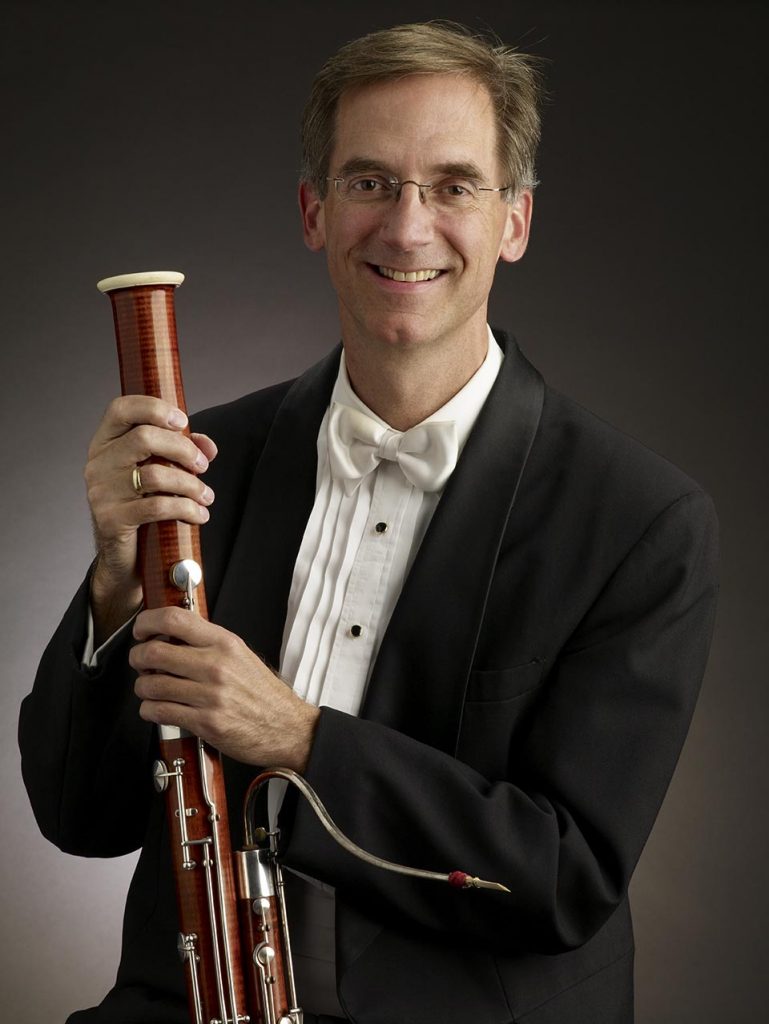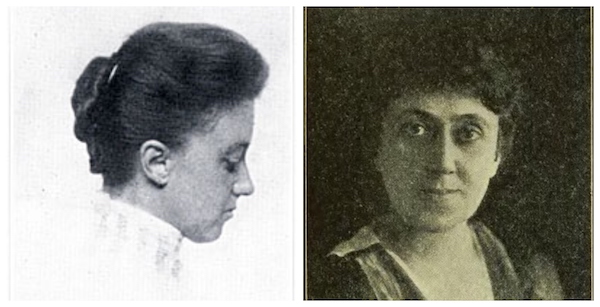by Jarrett Hoffman

•Today: bassoonist Barrick Stees gives a masterclass at University of Akron
•Announcements: a gear drive from Cleveland Uncommon Sound Project, and a new grant program aimed at increasing arts participation for underserved communities
•Interesting read: review of Moby Dick silent film
•Almanac: Margaret Ruthven Lang and Mabel Daniels, two Boston women composers who may not be as well-known as their contemporary, Amy Beach
HAPPENING TODAY:
High school bassoonists are invited to attend a masterclass by Cleveland Orchestra assistant principal bassoon Barrick Stees from 3:30-5:30 pm in room GH 05 at the University of Akron. Stay afterwards for pizza, warm-ups, and a rehearsal with the University’s bassoon ensemble, BassoonaRoo. Click here to email bassoon professor Cynthia Cioffari and reserve a spot.
ANNOUNCEMENTS:
The Cleveland Uncommon Sound Project is currently looking for donations of gear, including microphones, microphone stands, music stands, XLR cables, DI boxes, extension cords, powerstrips, stage lighting, and more. Wish to make a donation or have questions about what will be accepted? Click here to send an email, and be sure to include a description and the condition of each item. On another note, a reminder that CUSP is accepting Re:Sound Festival proposals until December 1.
And ArtsHERE — a new grant program from the National Endowment for the Arts, in partnership with South Arts and in collaboration with the five other U.S. Regional Arts Organizations — is accepting statements of interest through January 19. “Through grants and peer learning opportunities, ArtsHERE invests in organizations that have demonstrated a commitment to equity within their practices and programming, with the goal of increasing arts participation for underserved groups/communities, and sharing insights that may inform similar funding programs in the future.” An informational webinar will be held on November 30 from 2:00-3:30 pm. Find out more about the program here.
INTERESTING READ:
Last Tuesday’s Diary featured the 1820 whale attack on the Essex whaling ship, an event which inspired Herman Melville’s 1851 novel Moby-Dick — which in turn gave rise to Jake Heggie’s 2010 opera of the same name. In that same lineage is Wu Tsang’s 2022 silent film Moby Dick, which includes music by Caroline Shaw, Andrew Yee, and Asma Maroof. San Francisco Classical Voice covered the film’s recent West Coast premiere — click here to read a review by Lev Mamuya.
TODAY’S ALMANAC:
by Daniel Hathaway
Let’s take a moment to reflect on the careers of two Boston women composers who may not be as well-known as their contemporary, Amy (Mrs. H.H.A.) Beach.
Margaret Ruthven Lang, born on November 27, 1867, and Mabel Daniels, also born on November 27 but in 1879, were closely connected to Boston’s important cultural institutions, especially the Handel and Haydn Society (America’s oldest continuing musical institution) and the Boston Symphony Orchestra.
Lang, unlike Beach, was encouraged in her compositional endeavors by her husband and family, and wrote some 200 songs during her career. Her A Dramatic Overture was performed by the Boston Symphony in April, 1893, and she was honored on her hundredth birthday in 1967 with a special concert that also recognized her as the Orchestra’s longest subscriber — a total of 91 years. Click here to listen to her piano piece, Starlight.
Daniels’ career was more centered in academia. She graduated from Radcliffe magna cum laude and went on to study in Munich, where she was the first woman to successfully audition for the score-reading class at the conservatory. Returning to the United States, she taught at Radcliffe and Simmons College and spent 24 summers at the MacDowell Colony, where she premiered The Desolate City for chorus and orchestra in 1913, and Deep Forest, later performed in 1939 at Carnegie Hall. She also provided works marking Radcliffe’s 50th and 75th anniversaries. Click here to follow the score with a performance of Deep Forest, and here to watch a Philip Brunelle “Musical Moment” devoted to Daniels’ music.
Incidental thought: how did Boston, a musically conservative town, produce more than its fair share of women who can be considered pioneers, rebels, and eccentrics? (Add to that list such figures as the art collector Isabella Stewart Gardner.) Are there more such individuals and their music we should know about?




